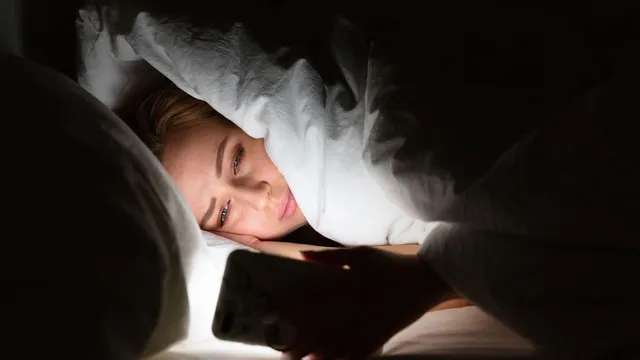- By Bornika Das
- Tue, 20 May 2025 07:53 PM (IST)
- Source:JND
Screen Time Affects Sleep: In today’s digital-driven world, it’s almost second nature to wind down at night by scrolling through social media, watching a show, or responding to one last email. While these habits may seem harmless or even relaxing, emerging research suggests they could be silently sabotaging your sleep. The glow of screens from smartphones, tablets, computers, and TVs emits blue light, which can disrupt the body’s natural circadian rhythm, delaying the release of melatonin, the hormone that signals it’s time to sleep. As a result, even short periods of screen use before bed can lead to trouble falling asleep, lighter sleep, and reduced overall sleep quality.
Poor sleep can have far-reaching effects on physical health, emotional well-being and cognitive performance. As screen time continues to climb across all age groups, understanding the science behind its impact on our nightly rest is more crucial than ever. In conversation with Jagran English, Dr. Arun Chowdary Kotaru, Unit Head & Sr. Consultant - Respiratory Disease & Sleep Medicine (Unit I), Artemis Hospitals, shares what blue light is emitted from smartphones, what are its disadvantages and tips to achieve peaceful sleep at night.
What is Blue Light And Why Is It Harmful?
Blue light is released by the sun and digital devices such as phones, tablets, and computers. Blue light keeps you awake in the daytime, which is fine. Dr. Arun Chowdary Kotar says, “But blue light at night can trick your body's clock. It Blue light prevents the release of melatonin, the hormone that puts you to sleep. Without enough melatonin, it becomes more difficult to fall asleep, sleep soundly, or get the kind of deep sleep your body requires.”
How Screen Time Affects Sleep
Dr. Arun Chowdary Kotar explains several reasons why screen time affects sleep, especially at night.
Delayed sleep time: Watching screens before bed keeps your brain awake, preventing you from relaxing and sleeping on time.
Poor sleep quality: Screen exposure disrupts deep sleep phases, so your sleep will be light, interrupted, and not really refreshing.
Shorter sleep time: Late-night screen usage leads to less time sleeping overall, leaving you with fewer hours to unwind and recover.
Daytime tiredness: Poor sleep results in fatigue, loss of focus, and mood swings the following day.Increased stress levels: Sleep interference from screen usage could increase stress hormones and leave you feeling anxious, stressed, or emotionally exhausted during the day.
-1747750811954.jpg)
Blue Light In Gadgets Can Disturb Sleep (Image Credits: Canva)
Tips To Reduce The Impact And Sleep Better
Dr. Arun Chowdary Kotar shares, “The good news is, there are easy things you can do to shield your sleep despite using technology.”
Skip screens at least one hour before bedtime. Let your brain unwind without stimulation.
Employ blue light filters, most devices nowadays come with a night mode or blue light filter that minimises the blue light exposure.
Wear blue light-blocking glasses since they filter out harmful blue light, which is especially helpful if you have to use screens at night.
Establish a bedtime routine by substituting screen time with soothing activities such as reading, stretching, or meditating to allow your body to settle into sleep.
Make the bedroom screen free to establish a comfortable sleep environment and resist the temptation of using phones, tablets, or TVs before sleep.
Screens are an integral part of our everyday lives, but being aware of their use is what will help ensure good sleep. Protecting your sleep is not only about sleep, but it ensures improved mental focus, emotional balance, and overall health. A few adjustments to your nighttime routine can make a significant difference in helping you sleep soundly and feel refreshed when you wake up.

